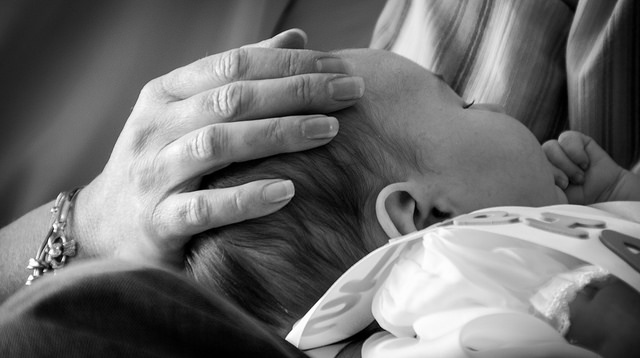“What our Prime Minister’s pregnancy tells us”
July 26th, 2018 New Zealand’s Prime Minister Jacinda Ardern had a baby girl just a month ago. Not only did she create history by becoming the first woman in New Zealand to give birth while in office, but her pregnancy also created quite a stir. Maisy Bentley, 19 years old, a Correspondent from Wellington, New Zealand, writes about the gender biases that were evident during her Prime Minister’s pregnancy.
New Zealand’s Prime Minister Jacinda Ardern had a baby girl just a month ago. Not only did she create history by becoming the first woman in New Zealand to give birth while in office, but her pregnancy also created quite a stir. Maisy Bentley, 19 years old, a Correspondent from Wellington, New Zealand, writes about the gender biases that were evident during her Prime Minister’s pregnancy.
While having a young, unmarried new mum as our Prime Minister is a momentous representation of the continued progress of women’s rights, our prime minister’s journey from pregnancy to childbirth, and now her future as a working mum – also serves as a reminder of the progress we are yet to make.
For every positive response to Prime Minister Ardern’s news, there was a multitude of negative responses. People questioned her marital status, her ability to keep her feelings under control with ‘baby brain’, the amount of time she was planning to take off – because six whole weeks was obviously enough for the country to fall apart. It was enough time too for her to be undeserving of her job, to label her as selfish and to be certain that it would be negative for her child.
Now, the Prime Minister faces huge challenges. If she lets motherhood impact her work, she will be used as an example of why women shouldn’t or can’t do both. If she spends too much time working, people will find a way to question her ability to be a mother. And if she manages to balance it all, people will say she’s unrelatable and setting an unrealistic standard.
Everyone in the country seemed to know better than Miss Ardern herself about her ability to balance work and parenthood. But, no one seemed to have an opinion on the capacity of Simon Bridges to balance a nearly three-month-old baby and his job as Leader of the Opposition.
Not a single person who I heard, talked about his ability to be a good parent and do his job. Not a single person who I saw on TV took it upon themselves to worry about the wellbeing of his child and to tell him that his selfish career prospects were harming his child.
Now, I’m aware that the workload and responsibilities of a Prime Minister and that of the Opposition Leader are significantly different, and that there are many differences between bearing a child yourself and supporting a partner who is bearing a child.
But, should there really be such a difference in how we treat the roles of mothers and fathers in the workforce?
Apparently so, and the difference is so stark that childcare and unpaid domestic labour are seen as a woman’s responsibility but when men do take responsibility, they’re often overly praised for it.
In an article published by Stuff for the ‘Rad Dads’ series, Former Prime Minister, Bill English talks about making sure he is home for dinner. He is given accolades for doing so. He talks about how this often meant he missed out on social functions and such like. Women sometimes don’t get this choice, they often are simply expected to go home to cook dinner for their child, skip networking opportunities and deal with the effect that has on their career.
Mr. English does, however, talk about how the role of fathers is changing. How he used to sit in meetings and think “how many women got up at 5 am” to make lunches and drop children at bus stops. And he is right. The roles of fathers and the division of labour in New Zealand households are changing.
You can’t just assume now that a man doesn’t do any domestic and childcare work, and that shows we have come a long way. We should – in general, in an equal society, be able to expect that both working men and women in your meetings have done just as much unpaid domestic labour and work for their child that day.
And yet, in contrast to Mr.Bridges, Miss Ardern was asked repeatedly and at length, how she was going to balance being a new parent and work. She has addressed this by saying that with her job, she will be criticised, and at times it might be well deserved. But she also says she has thought to herself that she hasn’t heard the same criticism levelled against male politicians.
In the midst of the hubbub about her pregnancy, her response has been one of intelligence, complexity, and grace. Her most famous response to questions about the challenge she faces in the future has been, “By no means am I the first woman to multitask.”
……………………………………………………………………………………………….
Photo: courtesy of Mike Van Dalen, Flickr
………………………………………………………………………………………………………………
About me: I’m studying towards a law degree and an arts degree. I also work in the not for profit sector, creating opportunities and advocating for young people, mental health, and women. I have significant accolades under my belt such as being named the most inspirational young person of the year and delivering a Ted Talk at 17. I believe that we can all be movers, shakers and doers when we don’t wait for permission to create the change we want to see in the world.
…………………………………………………………………………………………………………………
Opinions expressed in this article are those of the author and do not necessarily represent the views of the Commonwealth Youth Programme. Articles are published in a spirit of dialogue, respect and understanding. If you disagree, why not submit a response?
To learn more about becoming a Commonwealth Correspondent please visit: http://www.yourcommonwealth.org/submit-articles/
…………………………………………………………………………………………………………………




